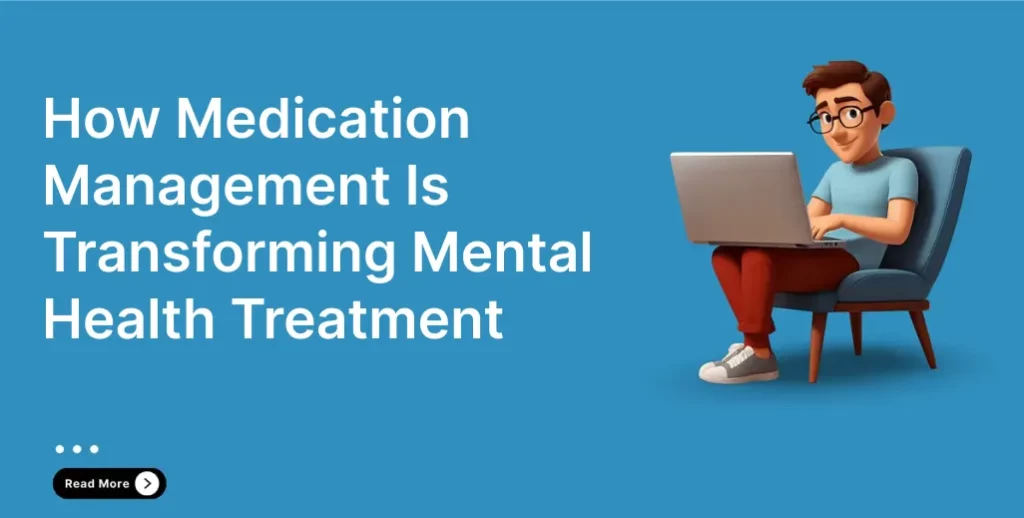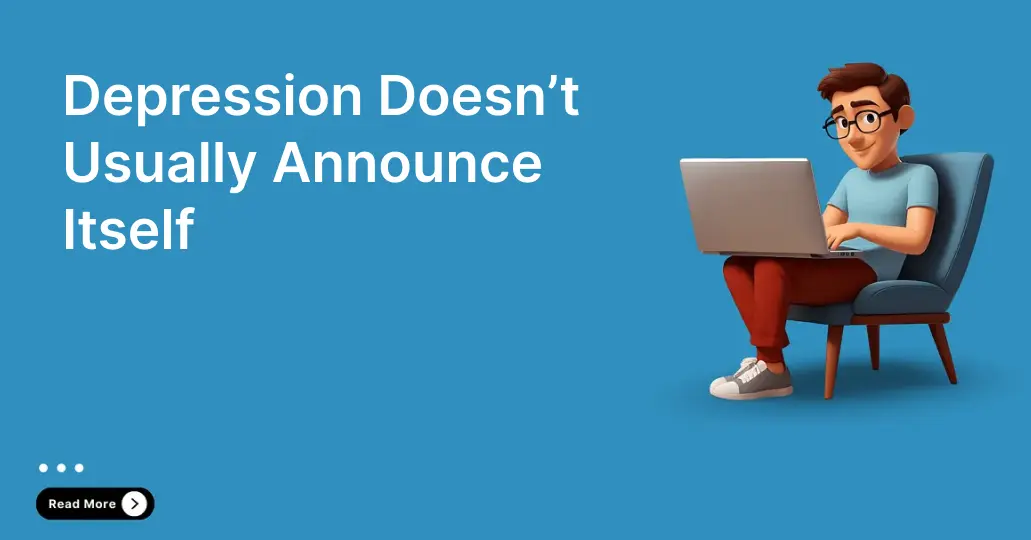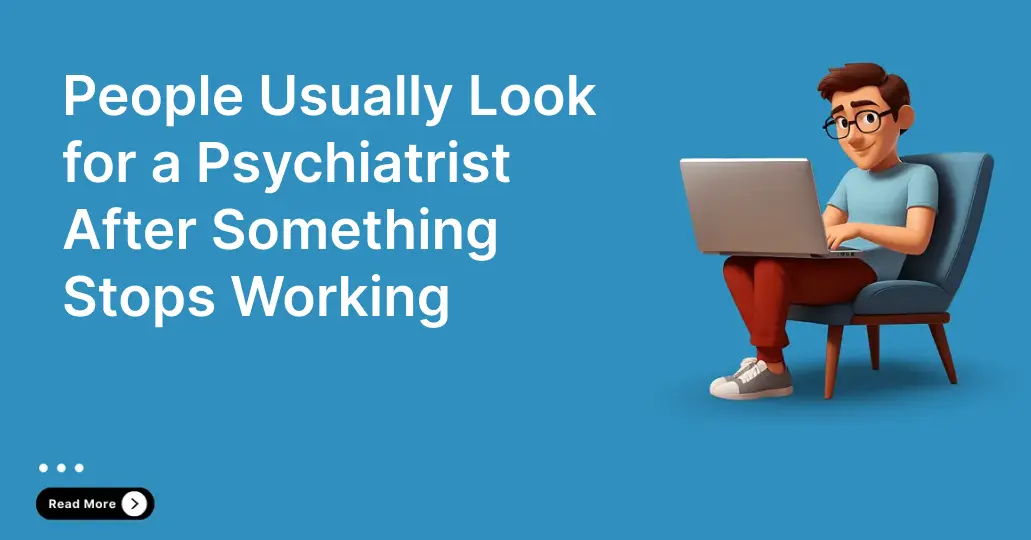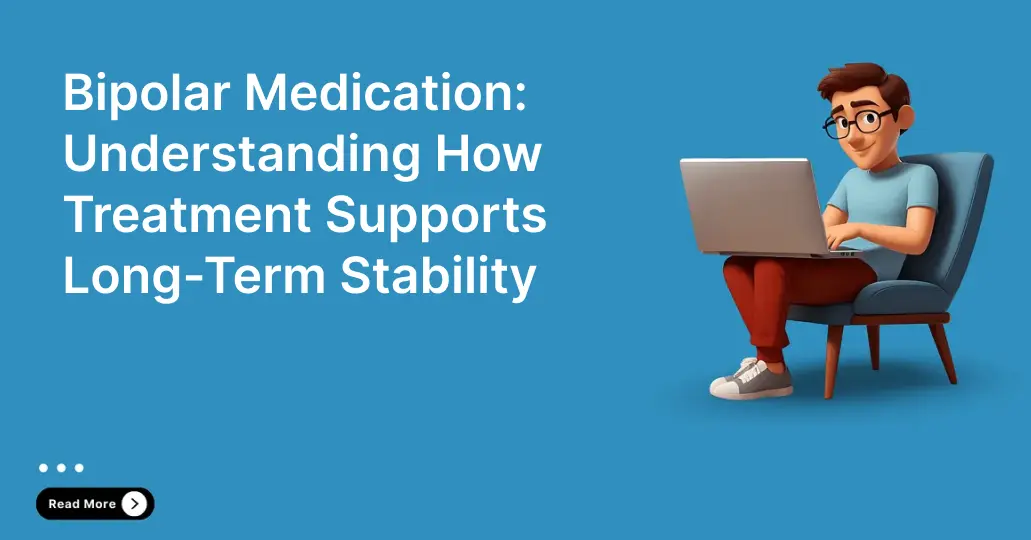Most people expect mental health problems to show up during...
Read More

Finding the right mental health treatment can often feel like trial and error, a long process of adjusting prescriptions, managing side effects, and waiting to see what works. Today, however, psychiatric care is entering a new era of precision. Through science-based prescribing and ongoing clinical oversight, psychiatrists can now develop highly personalized treatment plans that are safer, more effective, and tailored to each patient’s unique biology.
This evolution, shaped by innovations in precision psychiatry, allows clinicians to move beyond generalized approaches and toward evidence-based, individualized care that improves outcomes and restores hope for patients struggling with mood disorders, anxiety, and other conditions.
Modern psychiatry recognizes that no two patients respond to medication in the same way. Differences in genetics, metabolism, and environment can dramatically affect how well a person tolerates or benefits from a specific treatment. Personalized prescribing takes these differences into account, creating targeted care plans designed to optimize both safety and success.
Clinicians now use advanced diagnostic tools, such as genetic testing, biomarker analysis, and digital monitoring, to better understand how a patient’s body and brain respond to certain medications. This approach minimizes the guesswork that once defined psychiatric treatment and replaces it with data-driven insights that guide more predictable results.
For patients and providers seeking innovative, compassionate care, this model represents the future of psychiatry, one that’s grounded in science, individualized, and patient-centered.
In standard practice, finding the right psychiatric medication often requires multiple rounds of trial and adjustment. This process can take months or even years, causing frustration and emotional strain for patients. What works for one person may fail for another because of biological variations or differing medication sensitivities.
Precision-based prescribing reduces these uncertainties.Psychiatrists can identify which medications a patient is most likely to respond to, and which are best avoided due to potential side effects or low efficacy. The result is faster stabilization, improved safety, and a higher likelihood of long-term success.
Those interested in how personalized treatment models are reshaping mental health care can learn more through trusted psychiatric research and digital innovation initiatives that continue to lead this movement.
By tracking sleep, mood, and daily activity, psychiatrists can identify early signs of relapse, assess adherence, and make proactive medication adjustments before symptoms escalate, and these can be vital data points for disorders like anxiety and depression.
Technology doesn’t replace human care, it enhances it. Combined with compassionate clinical oversight, these innovations create a system that’s both efficient and deeply personal.
With advanced data collection and technology comes greater responsibility to protect patient privacy and maintain ethical standards. Precision-based psychiatry depends on sensitive health information, making security and transparency critical.
Clinicians must ensure informed consent, maintain confidentiality, and use data solely to improve patient care. By balancing scientific innovation with empathy, mental health professionals create an environment where patients feel safe, respected, and understood.
For more information on ethical practices and patient-centered innovation in psychiatry, visit Gimel Health to explore expert insights into the future of personalized mental health care.
As neuroscience and digital medicine continue to advance, psychiatry is becoming more personalized, predictive, and effective. Tailored prescribing strategies reduce side effects, speed recovery, and empower patients to take an active role in their healing journey.
By combining scientific precision with compassionate care, clinicians can deliver mental health treatment that’s not only effective but truly transformative. The future of psychiatry lies in this balanced approach, one that integrates data, technology, and humanity to promote lasting emotional wellness.
The path toward better mental health doesn’t have to be uncertain. To explore how personalized psychiatric treatment can improve outcomes and support long-term recovery, visit https://gimelhealth.com/ for expert guidance and comprehensive care options.






https://hwscenter.com/guest-post/medication-for-anxiety-and-depression/
Take this next step, we’ll help with the others.
Most people expect mental health problems to show up during...
Read MoreMost people don’t notice depression when it begins. They notice...
Read MoreMost people do not wake up one day and decide...
Read MoreA lot of people come into mental health treatment already...
Read MoreWe use cookies to improve your experience on our site. By using our site, you consent to cookies.
Manage your cookie preferences below:
Essential cookies enable basic functions and are necessary for the proper function of the website.
These cookies are needed for adding comments on this website.
Google reCAPTCHA helps protect websites from spam and abuse by verifying user interactions through challenges.
Google Tag Manager simplifies the management of marketing tags on your website without code changes.
You can find more information in our Cookie Policy and Privacy Policy.